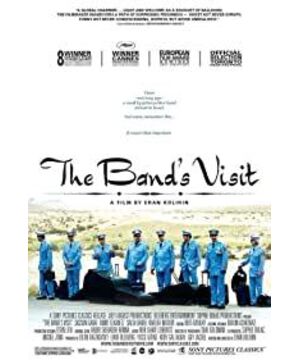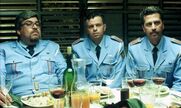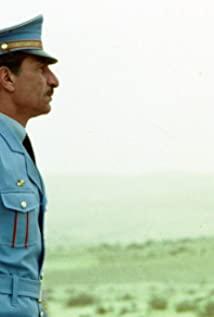The same limitation as Malthus's Theory of Population is that philosophers did not expect that advances in science and technology would delay loneliness. Information technologies such as radio, television, the Internet, cell phones, etc., continue to spread modernity to those who still lived in the classical era.
What is the classical era? Just like China's 'India' Southeast Asia in the 1980s and 1990s, there are still many so-called backward regions. Although modern political and economic systems have entered the core of power in these regions, without exception, these regions have experienced some power failure events, such as the experience of being colonized, such as the national pain caused by extreme political experiments. This keeps these places vigilant against modern politics, but in the wave of globalization, after entering the 21st century, most of them feel that they have entered modern life.
If these explanations are changed to individual life experience, take China as an example, although people in the late 1980s and early 1990s received Western-style education, our childhood life experience is still not essential to Chinese children a thousand years ago. the difference. Of course this is an example of rural China, where modernity did not enter the central and western regions at that time, but just returned to the coastal areas. We are still in the company of our neighbors, and we live in places where the tools of the farming era were everywhere to transform nature: ponds, public theatres, canals, outside houses with crisscrossed fields. And our ethics is also the ethics of the farming era. Women have no status but always work. Men go to other places to make a living after cultivating the land. The elderly and children are free family labor.
As the only school with the characteristics of modernity, it is itself a product of anti-modernity: strict discipline, strong power management, and an extremely retro sense of value. The retro worth mentioned here is the retroness in Marx's thought, that is, the unity of the classical era.
In short, the classical sense of life is: corporate, integrated, religious. There was no problem of loneliness in the classical era. In Europe, even the poorest medieval poor man was at peace in his heart, and he lived in the spiritual home of Christianity. Conversely, in imperial China, even in extremely remote mountainous areas, the people there are stories of the three generations of Yao, Shun, and Yu. The words of the sages may not have been seen in books, but the Confucian creeds are based on the secular traditions of Buddhism and Taoism. The transformation must be transmitted to the most remote places.
For the Chinese, a sense of nationality, a sense of culture is our god, but modernity destroys these senses. The first thing we see is the loss of these feelings among the new generation in Hong Kong and Taiwan. Note that this is not intended to interfere with politics, but to discuss philosophy, or the philosophical reasons behind political phenomena.
Loneliness becomes a fatal problem once modernity is thrown into the psychological embrace of classical times, and it leads to all kinds of problems. Some people avoid loneliness through material enjoyment, some people avoid loneliness by playing with their bodies and get physical stimulation, some people try to return to the classical era to escape loneliness, and some people, such as young people in Hong Kong and Taiwan, try to escape loneliness through politics. activities to escape loneliness.
To use an analogy, loneliness is like a cage. The person sitting in the cage lives by trying to possess things that do not belong to him. Some people live by immersing in the stimulation of the body, and some people imagine that the cage is nothing. Those who don't exist live on, and some people, such as young people from Hong Kong and Taiwan, get a sense of heroism by colliding with iron bars with their bodies.
In the Israeli film "The Band Visits", the loneliness of a small town is the narrative of individual loneliness in the context of globalization. The protagonists are a group of Egyptian police bands. They came to a small town in Israel by accident and met the female owner of a restaurant, a middle-aged unemployed, and an unemployed young man. Because of the national background, it is easy to think of another movie "The Cowboys of Leningrad", whether it is ancient Egyptians or current Arab Egypt and Israel are places of ideological opposition. In Leningrad's Journey to Beauty, the director tried to place the conscious value of Russia in the modern American society to form a contrast, and in fact the film did create a sharp contrast.
But in "The Band Visits", I only saw loneliness and exhaustion, which seemed too mild and plain, but this is what individual life is like. In the struggle for hegemony in the Soviet Union, people stimulated their emotions, made modern weapons of great lethality, and sent humans and dogs into space and the moon. Humanity has indeed demonstrated what enormous creative and destructive power the human being as a whole can wield. Just like the exaggerated performance in Leningra's Cowboys' Story, tit-for-tat values.
As an individual person, he is incompetent. He cannot make an atomic bomb, nor does he have the ability to go to space. He only has the ground under his feet, his body, and the people around him.
The whole movie does not have the strong sense of rhythm of American movies. In my imagination, it should be this band that will bring a heartwarming scene to this desolate town, this forgotten individual town in the context of globalization. Unforgettable emotional performance. Or collide with the sparks of sweet and gorgeous love. But no, the tone of the entire film is calm, a stern family dinner, a stern park conversation, and a quiet wait amid conflict.
The disciplined and traditional leader of the orchestra is a symbol of a bygone era, unpopular with the members, stubborn and serious. But to the female proprietor of the small restaurant, this zeitgeist exudes glamour, an emotion like nostalgia. As the youngest member of the group, Parry, who is handsome and understands women, does not have much shadow in the eyes of the lonely female boss. Although it is Parry who comforts her loneliness in the end, and the age of old age will never have anything to do with modernity. For it, fidelity is the highest value, and because of fidelity, loneliness does not exist.
We can find many American movies like "Shining", "Big Fish", "Truman's World", "Groundhog Day", the protagonists of these movies are heroes who resist modernity, they are gorgeous, they shout to inspire Man's fighting spirit. I understand now that these heroes are collective personifications, and like the more straight-forward American Superman movies, the stories they tell are the stories of the United States of America.
But one day people will discover that they are different from each other, and that discovery can lead to a breakdown, like the Joker in Batman. That impressive scene in "Batman": The Joker lets people on two ships hold each other's remote controls for bombs, whichever ship presses first and which survives, although I vaguely remember that the movie relied on bats Xia's superpower resolves this contradiction. But this difficulty in choosing just means that the group is formed by different individuals after all, and it is not an integration in the true sense after all. Sooner or later people discover that they are themselves and others are others.
This movie viewing experience also comes from the movie "Don't Let Me Go". When the protagonists realize that they are captive organ carriers, they will inevitably be harvested and die, but there is no sense of resistance in the movie, and the people who are harvested Also separated from each other because of lust. I thought at the time how shocking this was, where did the American heroism of the 80s and 90s go? Truman chose to break out! The big fish are forever hidden in the deep water and never caught. The people in this film chose to bear it, and even hoped to be forgiven through love.
In Dostoevsky's novel The Brothers Karamazov, the protagonist does not have the power to save his lust-enchanted father and brother from a duel. Dostoevsky chose a moral tolerance to face evil. I think maybe they finally see what the individual looks like: the individual has nothing but himself.
I think that one day we will face this problem with no escape. Maybe it will be exhausted, maybe it will be insane, maybe it will be who we are.
View more about The Band's Visit reviews











